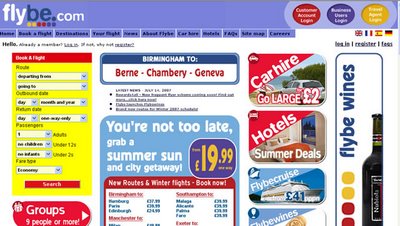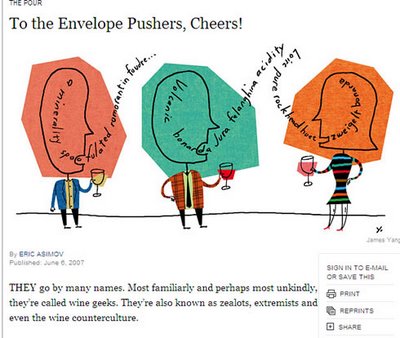A nightmare...
Eagle-eyed readers may have noticed that on Friday, wineanorak.com took on a rather different look - instead of the normal site and blog, a holding page from network solutions.
I was greeted by this first thing in the morning, as I logged on before heading off for a family celebration in Somerset. I froze. Something was clearly very wrong. What had happened is that the domain had expired, because it hadn't been renewed. When I started the site in November 1999, my then hosting provider, Global Internet, registered and administered the domain on my behalf. As Global was bought, and then the company that bought it was bought (by Pipex), the domain continued to be administered and renewed on my behalf. But when I was shifted within Pipex to one of their many subsiduary companies, Web Fusion, the administration of the domain fell between the cracks.
Thus no one bothered to respond to domain renewal notices, and so the first thing I knew of this was when the domain had disappeared. This prompted 2.5 hours of frantic phone calls. Network Solutions wouldn't let me renew the domain, because it was purchased by my hosting company. Web Fusion said there was nothing they could do. Pipex said it wasn't really their problem, but were quite apologetic - although I was left nowhere nearer actually renewing the domain. It was an appalling situation.
Still, it's now back up, although there's a bit more negotiation needed to bring final resolution. When your primary business is online, a domain is an incredibly valuable part of your business. Wineanorak.com may not be worth all that much to someone else, but it is worth a very great deal to me, and the prospect of losing it, or having the site down for a significant time, is a frightening one.
Labels: websites


 The web log of wine journalist Jamie Goode. Feel free to nose around; your comments are welcome
The web log of wine journalist Jamie Goode. Feel free to nose around; your comments are welcome 
